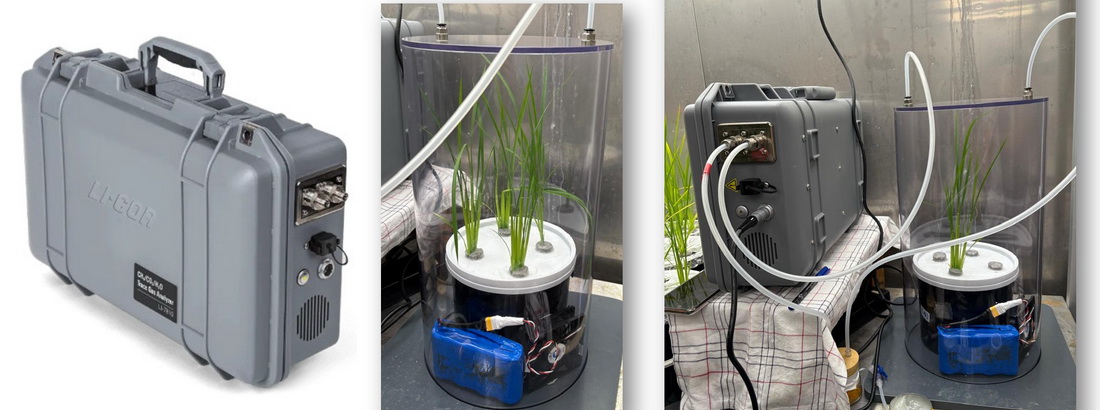Plant-mediated diffusion of greenhouse gases
Rice feeds half the world - but it is also a major source of greenhouse gases like methane and nitrous oxide. Surprisingly, up to 90% of these emissions pass through the rice plant itself. This project explores how root and shoot traits in rice control greenhouse gas diffusion from soil to atmosphere. By combining advanced lab techniques in Denmark with field trials in the Philippines, we aim to uncover the plant mechanisms behind emissions - and pave the way for climate-smart, high-yield rice varieties.

Rice plants play a surprising role in climate change - not just by growing in flooded fields that produce greenhouse gases (GHGs), but by acting as conduits that help those gases move from soil to atmosphere. This research aims to uncover how different parts of the rice plant - especially roots - contribute to this process.
First, we will examine how variations in shoot and root structure affect GHG release, with a focus on roots because they are in direct contact with the gas-producing soil. Next, we will investigate which roots let gases in and why - some roots may lack protective coatings, making them more permeable. Finally, we will explore how different root types help create oxygen-rich zones in the soil that can reduce harmful methane by turning it into less potent carbon dioxide. We also want to understand whether having sponge-like (porous) root tissues is good or bad for climate impact. The ultimate goal is to help breed rice varieties that maintain high yields while minimizing harm to the planet.
Jiménez JdlC, Pedersen O (2023) Mitigation of greenhouse gas emissions from rice via manipulation of key root traits. Rice 16: 24. doi: 10.1186/s12284-023-00638-z.
Jiménez JdlC, Pellegrini E, Pedersen O, Nakazono M (2021) Radial oxygen loss from plant roots - methods. Plants 10: 2322. doi: 10.3390/ plants10112322.
Peralta Ogorek LL, Jiménez JdlC, Visser EJW, Takahashi H, Nakazono M, Shabala S, Pedersen O (2024) Outer apoplastic barriers in roots: prospects for abiotic stress tolerance. Functional Plant Biology 51: FP23133. doi: 10.1071/FP23133.
We collaborate with Drs. Amelia Henry and Ando Radanielson at the International Rice Research Institute in the Philippines through the project REMET, where the field testing of our hypotheses will take place.
Funded by:

Project: Plant-mediated diffusion of greenhouse gases
Funding agency: Novo Nordisk Fonden
Period: 3 years
Grant: DKK 2,499,944
Period: January 2025 to December 2028
Contact
Postdoc Juan Jiménez, PI
ORCID
